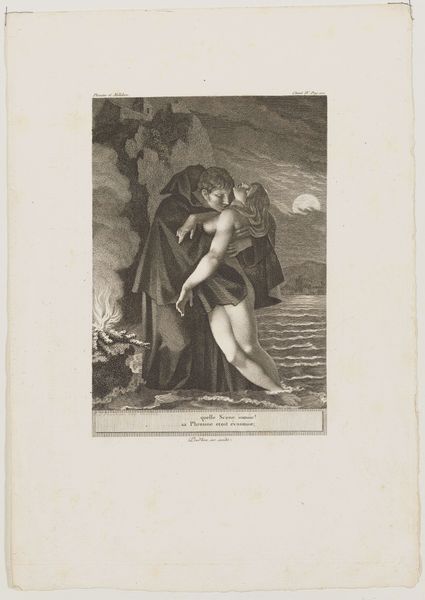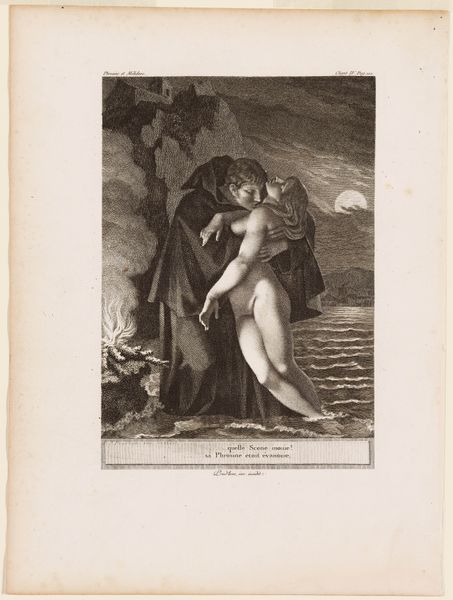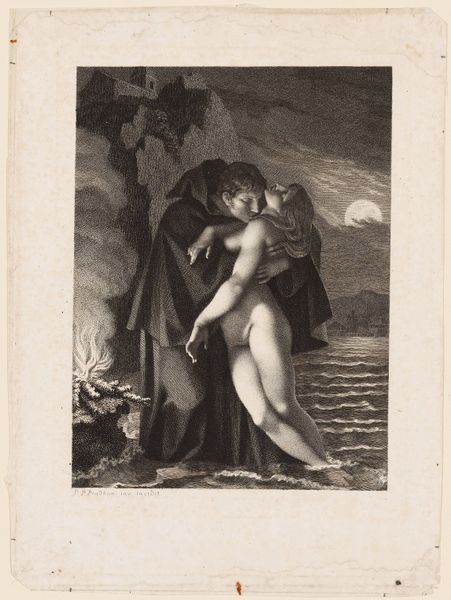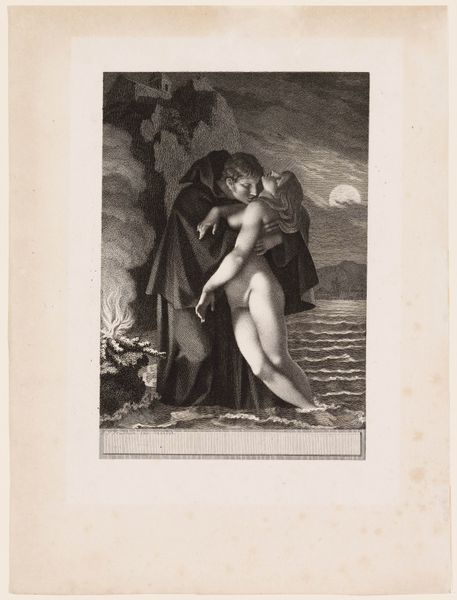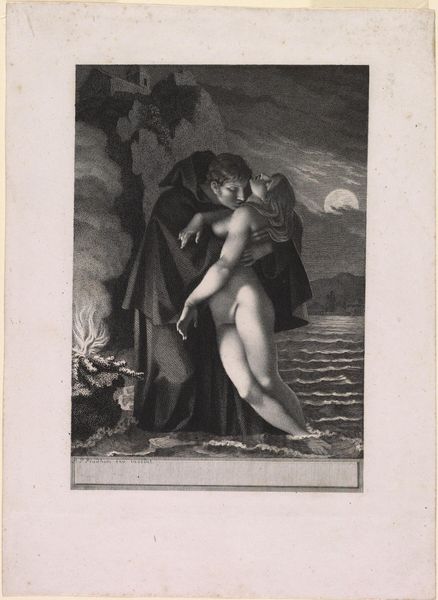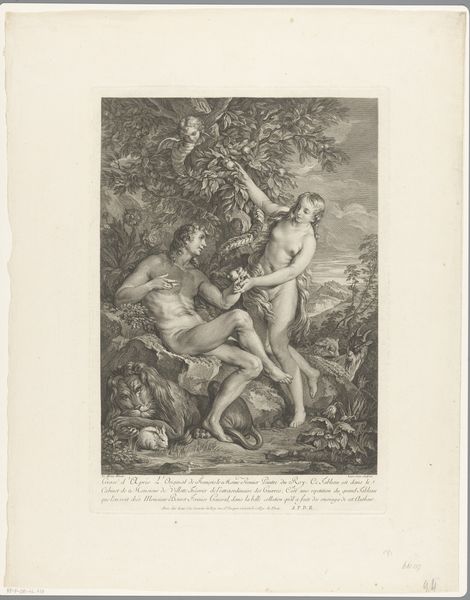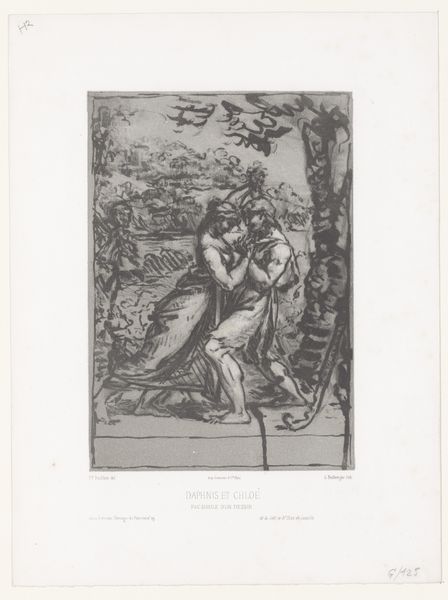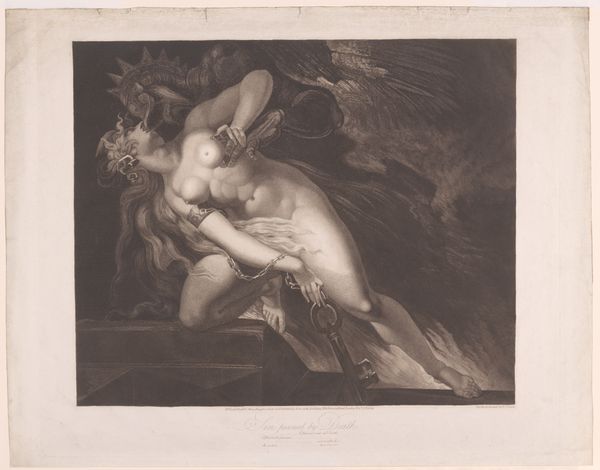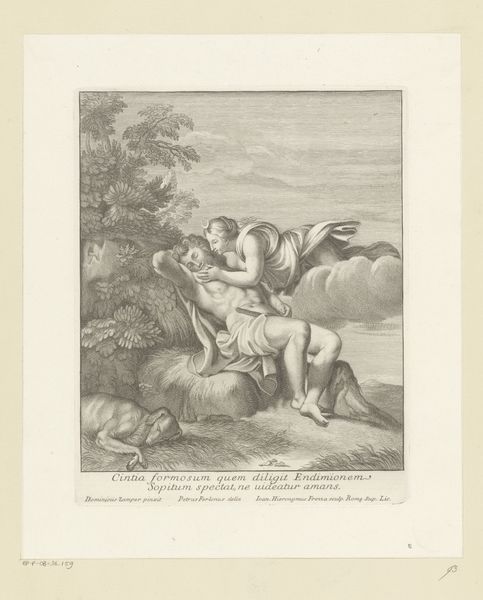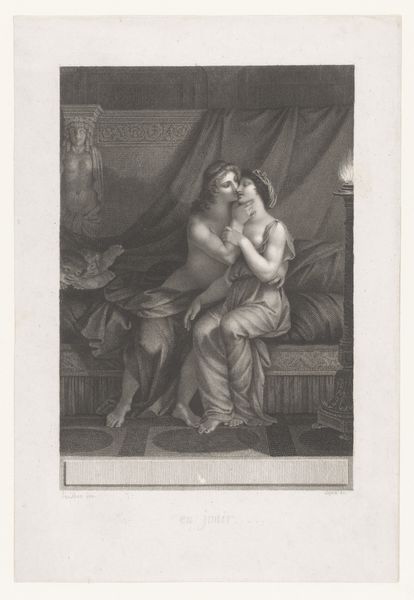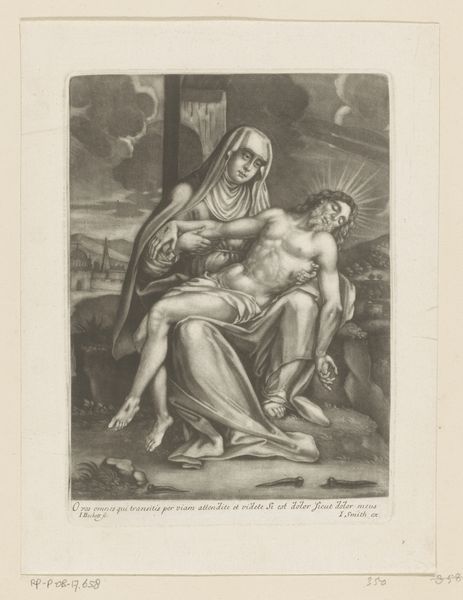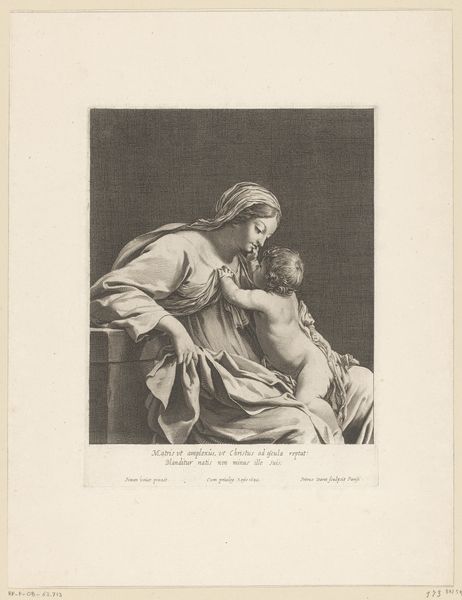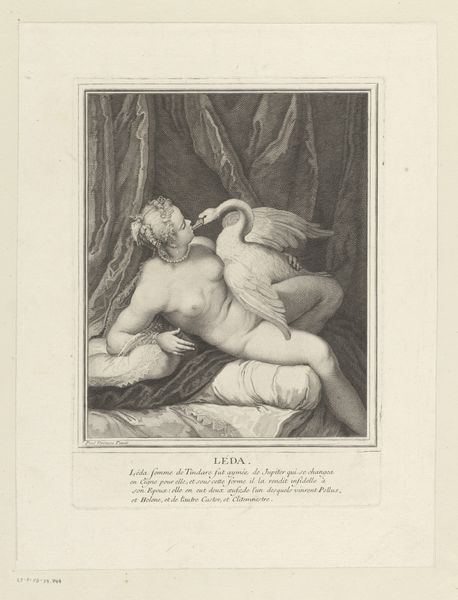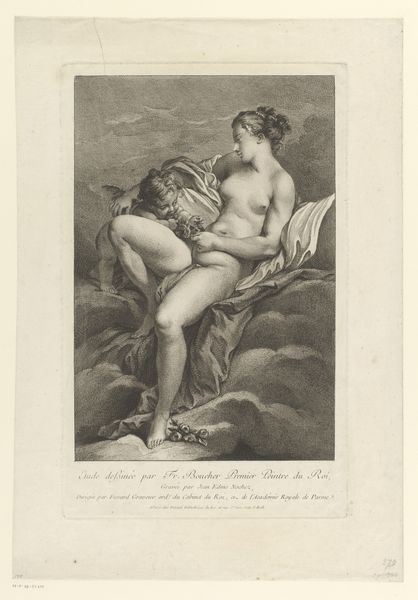
print, etching, engraving
#
narrative-art
# print
#
etching
#
figuration
#
romanticism
#
history-painting
#
nude
#
engraving
Dimensions: 8 1/8 x 5 11/16 in. (20.64 x 14.45 cm) (plate)12 13/16 x 9 1/2 in. (32.54 x 24.13 cm) (sheet)
Copyright: Public Domain
Pierre-Paul Prud’hon created this print, “Phrosine et Mélidore,” using engraving, a process that demands meticulous labor. The image is not drawn freehand. Rather, it emerges from the skilled use of tools to carve lines into a metal plate. The dense network of fine lines creates shading and form, revealing the artist’s mastery over the medium. The very deliberate nature of engraving allowed for the clean, precise lines that give the image its clarity. The physical labor involved in printmaking is easy to overlook, yet it is key to understanding its social context. In Prud’hon’s time, prints made art accessible to a wider audience. While an original painting would be affordable only for the wealthy, prints could be produced in multiples, democratizing the consumption of art. So next time you look at a print, consider the work that went into its making. The inherent qualities of the medium – its capacity for repetition, its dependence on skilled labor – imbue the artwork with layers of meaning. They take us beyond the image itself, into the world of production and consumption.
Comments
No comments
Be the first to comment and join the conversation on the ultimate creative platform.
